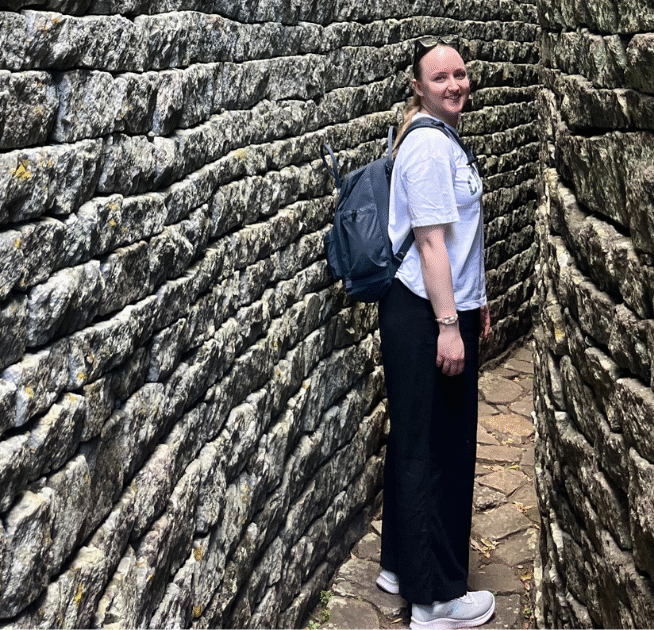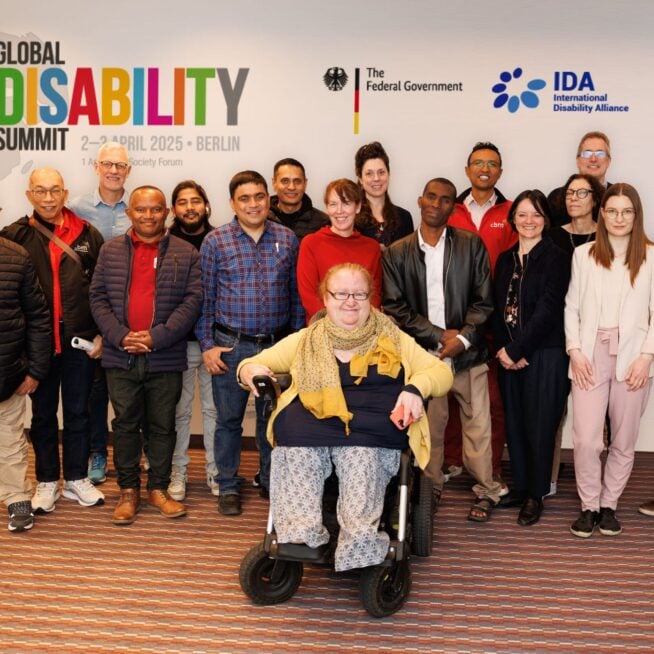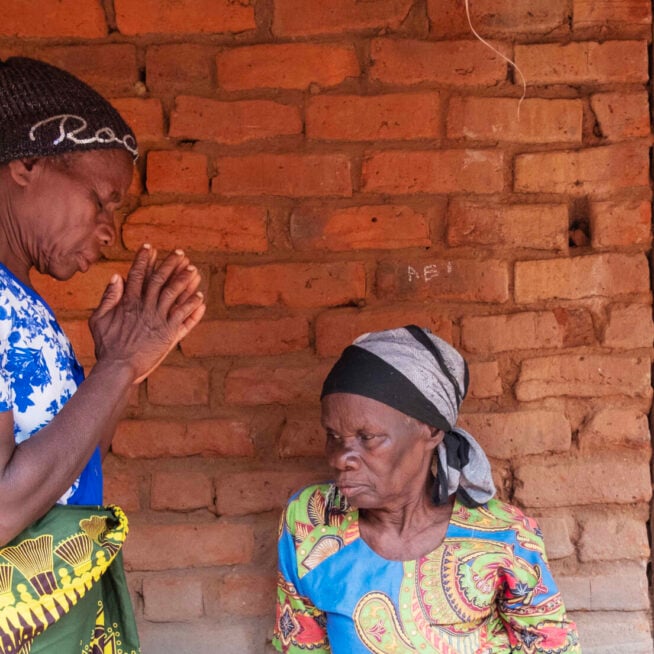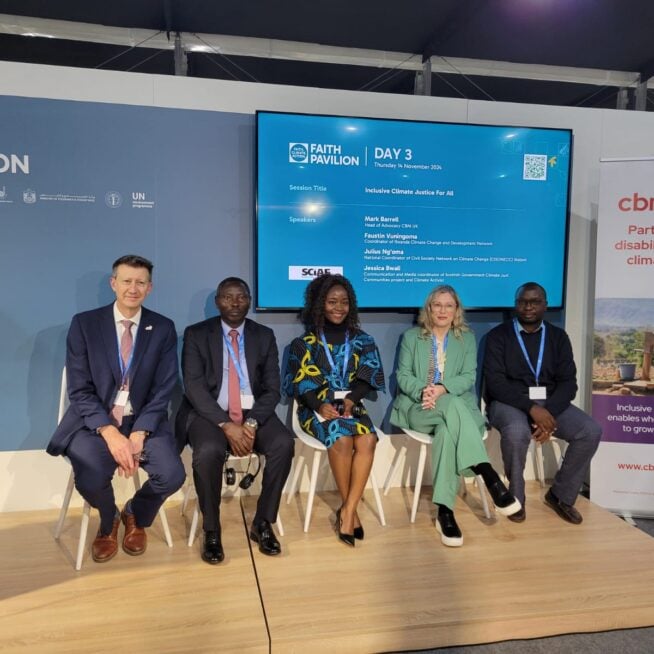Want to transform lives with us? Stay in touch and hear about our news, activities and appeals by email!
FCDO Disability Inclusion and Rights strategy: Ambition is to be encouraged but confidence has to be re-engaged
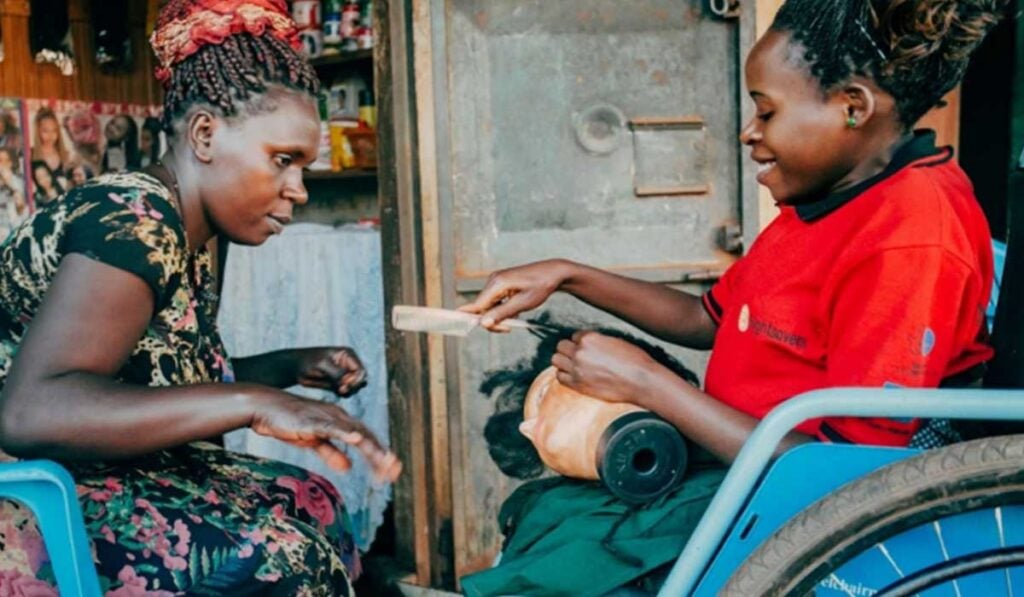
The new FCDO Disability Inclusion and Rights strategy (open in new tab) alongside 18 commitments (Gov website – open in new tab) to help its delivery were launched at the Global Disability Summit in February 2022 by Vicky Ford, the Minster for Africa, Latin America and the Caribbean at the Foreign, Commonwealth and Development Office (FCDO).
CBM UK was amongst the first to welcome the new strategy, in our news story that week. In doing so Kirsty Smith commended the UK government recognition of the fact that “that people with disabilities worldwide must be full and active members of society and decision-makers in all aspects of life.” This resonates with our own vision to see ‘an inclusive world in which all people with disabilities enjoy their human rights and achieve their full potential.’
Ambition
Kirsty followed this up by saying that “The ambition of the strategy shows a real desire to ensure that their rights are upheld.” So what is that ambition?
The FCDO states that as they work towards 2030 in implementing the strategy they “reaffirm our commitment to act as a global leader on disability inclusion across our diplomatic and development efforts” and commit to people with disabilities being “meaningfully engaged, empowered and able to exercise and enjoy their full rights and freedoms on an equal basis with others, without discrimination and across the life-course.”
If these commitments are backed by action, funding and accountability then the strategy provides a very strong foundation for the FCDO global engagement with the one billion people with disabilities in enabling them to be full and active members of their society. Such ambition can only be welcomed and we at CBM UK look forward to supporting the FCDO and the Disability Inclusion Team in achieving this.
Approach
In a compelling approach the FCDO have highlighted four desired outcomes to achieve this ambition: Rights, Voice, Choice and Visibility.
These are hallmarks to demonstrate that people with disabilities are enjoying full and equal access to their rights, whose voice is heard in meaningful participation, with active choice in life decisions and whose visibility is evidentially increased within all aspects of the work the FCDO is committed to.
The FCDO identifies seven key intervention areas that will provide a focus to enable these outcomes: human rights, education, health, social protection, economic empowerment, humanitarian action, and what is described as an emerging area of climate.
Within the 40 pages of the strategy there are wide ranging commitments to deliver on the ambition across all levels and sectors of the community, including fully representative, collaborative and comprehensive consultation with people with disabilities and their representative organisations. Through this the FCDO seeks to enable people with disabilities globally to live in a way of their choosing with dignity, autonomy and in full participation within society throughout all aspects of life.
What is not to welcome and applaud in this? Recent experience has however given cause for concern on whether this ambitious strategy is achievable, and can be properly implemented.
Undermining achievement
CBM UK witnessed first-hand at the first Global Disability Summit held in London in 2018 the momentum gained on disability inclusion. In part this was due to the then Department for International Development (DfID) leading the way as hosts by launching their very first UK Government Disability Inclusion Strategy. DfIDs hope was to make global development more inclusive of people with disabilities.
By November 2020 the newly formed FCDO were able to report on how far the DfID strategy had come in achieving its aims, but recognised that COVID-19 in particular had caused unprecedented challenges. This resulted in an admission that “Unfortunately, this has meant slower progress on some goals to focus on the urgent new demands”. There is no doubt that the Covid-19 pandemic has had very severe impact on people with disabilities (Bond Website – open in new tab).
Against this backdrop, hugely concerning and significant cuts in international development funding happened. In July 2021 the UK abandoned its commitment to spend 0.7% of our gross national income (GNI) on Overseas Development Assistance (ODA), reducing it to 0.5% – a drop of £4billion to £10 billion. This had impact on programmes that focused on people with disabilities. CBM UK projects were amongst those affected, including a project improving healthcare access for some of the most marginalised people in Bangladesh. This A graded project (by the FCDO’s own rating mechanism), which had been fully adapted to respond to COVID-19 including supporting testing and vaccination of people with disabilities, was forced to close 2 years into a 3 year cycle.
Then in early March 2022 the International Development Committee (IDC) shared (parliament Website – open in new tab) a leaked “Equalities Assessment” that demonstrated Government awareness that “Reductions in ODA may impact FCDO ambition on disability inclusive development” and the cuts would affect “activities that seek to address specific barriers faced by marginalised groups that prevent them from benefiting from our investments on an equal basis to others (for example ensuring people with disabilities can access services). Without targeted initiatives, development gains may not benefit the “hardest to reach”. Later that month the IDC heard oral evidence (open in new tab) of the severity of impact on numerous projects that were making real differences to the lives of the most marginalised.
This has resulted in a significant undermining in confidence, and a genuine concern as to whether the ambitious words in the strategy have substance and can be achieved.
Accountability and action
The strategy commits the FCDO, across what is described as a “vast network of more than 280 offices worldwide”, to aim to mainstream disability inclusion through policy, diplomacy, influencing, programme, procurement and safeguarding and “to develop and adapt approaches to equalities and disability inclusion in line with local needs, capabilities and partnerships.”
This provides a huge window of opportunity but if this ambition is to be realised, and confidence re-engaged within the disability sector then what is needed going forward is full accountability, with action and the funding to achieve the high aims. These areas will be explored in part two of this blog.
Image: A wheelchair user is employed at Maama Rachel’s Saloon. Copyright: Martin Kharumwa by kind permission of Sightsavers.

